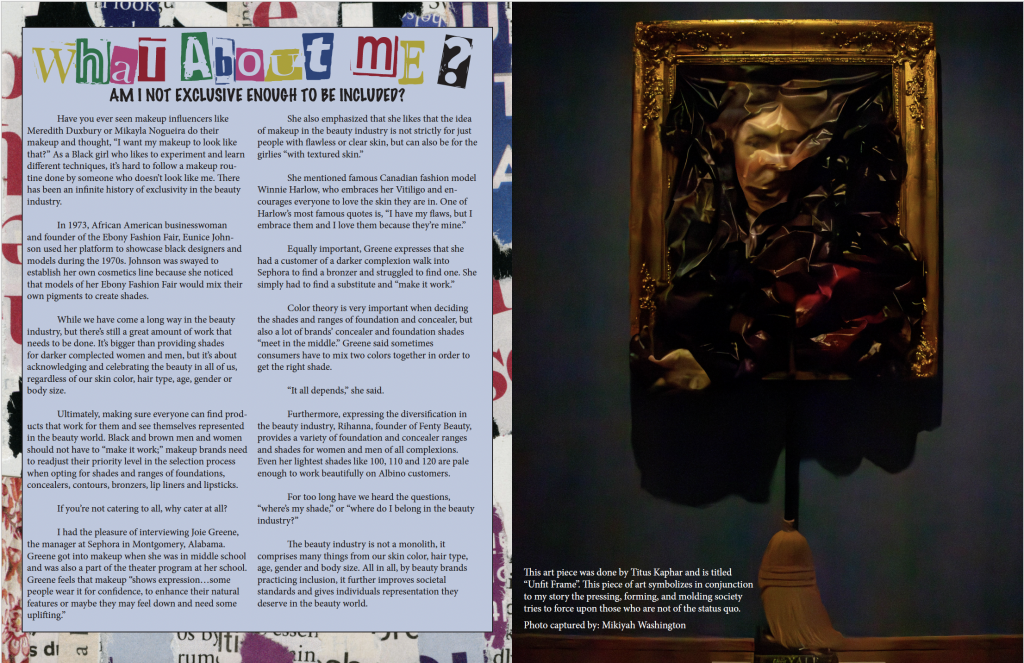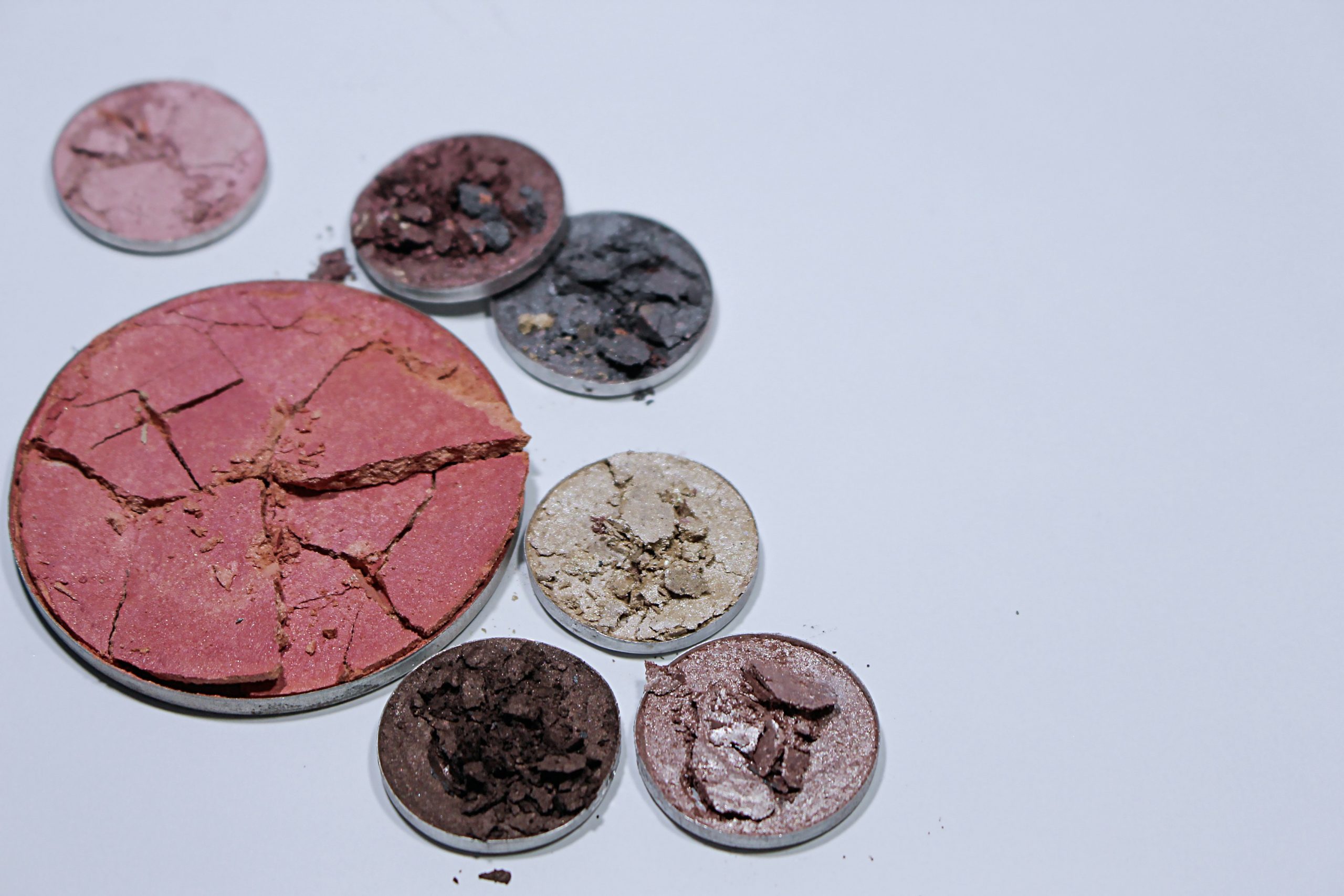By: Mikiyah Washington, 2024 Cohort

Full story text:
Have you ever seen makeup influencers like Meredith Duxbury or Mikayla Nogueira do their makeup and thought, “I want my makeup to look like that?” As a Black girl who likes to experiment and learn different techniques, it’s hard to follow a makeup routine done by someone who doesn’t look like me. There has been an infinite history of exclusivity in the beauty industry.
In 1973, African American businesswoman and founder of the Ebony Fashion Fair, Eunice Johnson used her platform to showcase black designers and models during the 1970s. Johnson was swayed to establish her own cosmetics line because she noticed that models of her Ebony Fashion Fair would mix their own pigments to create shades.
While we have come a long way in the beauty industry, but there’s still a great amount of work that needs to be done. It’s bigger than providing shades for darker complected women and men, but it’s about acknowledging and celebrating the beauty in all of us, regardless of our skin color, hair type, age, gender or body size.
Ultimately, making sure everyone can find products that work for them and see themselves represented in the beauty world. Black and brown men and women should not have to “make it work;” makeup brands need to readjust their priority level in the selection process when opting for shades and ranges of foundations, concealers, contours, bronzers, lip liners and lipsticks.
If you’re not catering to all, why cater at all?
I had the pleasure of interviewing Joie Greene, the manager at Sephora in Montgomery, Alabama. Greene got into makeup when she was in middle school and was also a part of the theater program at her school. Greene feels that makeup “shows expression…some people wear it for confidence, to enhance their natural features or maybe they may feel down and need some uplifting.”
She also emphasized that she likes that the idea of makeup in the beauty industry is not strictly for just people with flawless or clear skin, but can also be for the girlies “with textured skin.”
She mentioned famous Canadian fashion model Winnie Harlow, who embraces her Vitiligo and encourages everyone to love the skin they are in. One of Harlow’s most famous quotes is, “I have my flaws, but I embrace them and I love them because they’re mine.”
Equally important, Greene expresses that she had a customer of a darker complexion walk into Sephora to find a bronzer and struggled to find one. She simply had to find a substitute and “make it work.”
Color theory is very important when deciding the shades and ranges of foundation and concealer, but also a lot of brands’ concealer and foundation shades “meet in the middle.” Greene said sometimes consumers have to mix two colors together in order to get the right shade.
“It all depends,” she said.
Furthermore, expressing the diversification in the beauty industry, Rihanna, founder of Fenty Beauty, provides a variety of foundation and concealer ranges and shades for women and men of all complexions. Even her lightest shades like 100, 110 and 120 are pale enough to work beautifully on Albino customers.
For too long have we heard the questions, “where’s my shade,” or “where do I belong in the beauty industry?”
The beauty industry is not a monolith, it comprises many things from our skin color, hair type, age, gender and body size. All in all, by beauty brands practicing inclusion, it further improves societal standards and gives individuals representation they deserve in the beauty world.
Photo caption: This art piece was done by Titus Kaphar and is titled, “Unfit Frame.” This piece of art symbolizes in conjunction to my story the pressing, forming, and molding society tries to force upon those who are not of the status quo. Photo by Mikiyah Washington.
